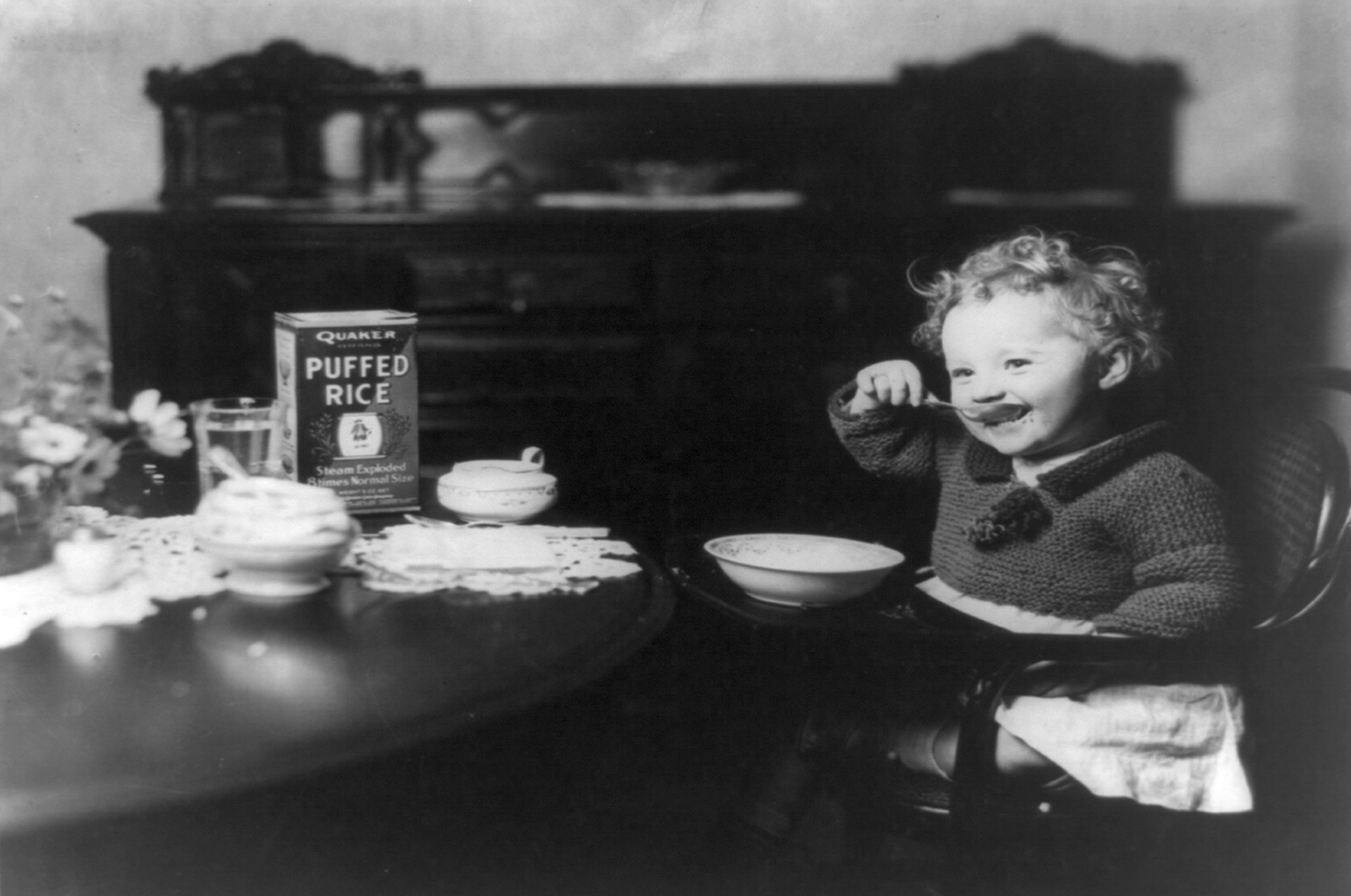
Child in high chair eating cereal, c. 1918. Library of Congress, Prints and Photographs Division.
• Phyllis Rose on Vita Sackville-West and Virginia Woolf: “They were in merely epistolary contact. I say ‘merely,’ but there is nothing negligible about the arousal capacity of letters from distant friends, the traveler treasuring the connection to home with the desperation of a drowning swimmer, and the stay-at-home living on the traveler’s passion.” (The New York Review of Books)
• The cartoon context of Maus. (Artforum)
• On the new laws restricting how teachers approach American history: “I think that some of the legislation being passed disregards young people’s ability—especially this generation—to accept new information and process it, without feeling shame or guilt.” (New York Times)
• The history of breakfast curries in colonial India. (Atlas Obscura)
• On medieval kissing. (Medievalists.net)
• A new podcast explores the history of the Crown Heights Riot. (Love Thy Neighbor)
• “There were once fifty-seven triumphal arches in Rome and more across the empire. Yet little is known about the vast majority of these monuments from contemporaneous or later sources, and no remains of them survive. Only three of the city’s triumphal arches still exist, the largest of which is the Arch of Constantine.” (Archaeology)
• The meme that relies on the culinary limits of a Victorian child. (Mel)
• This week in obituaries: Howard Grimes, Bappi Lahiri, Valerie Boyd, Carmen Herrera, Ivan Reitman, Kathryn Kates, Sarah White, Rosalie Kunoth-Monks, Ian McDonald, Lars Eighner, Leslie Parnas, John Wesley, Rabbi Simcha Krauss, Beverly Ross, Peter Earnest, Henry Danton, Hugo Torres, Bob Wall, Werner Grossmann, Julie Saul, Gail Halvorsen, and P.J. O’Rourke.